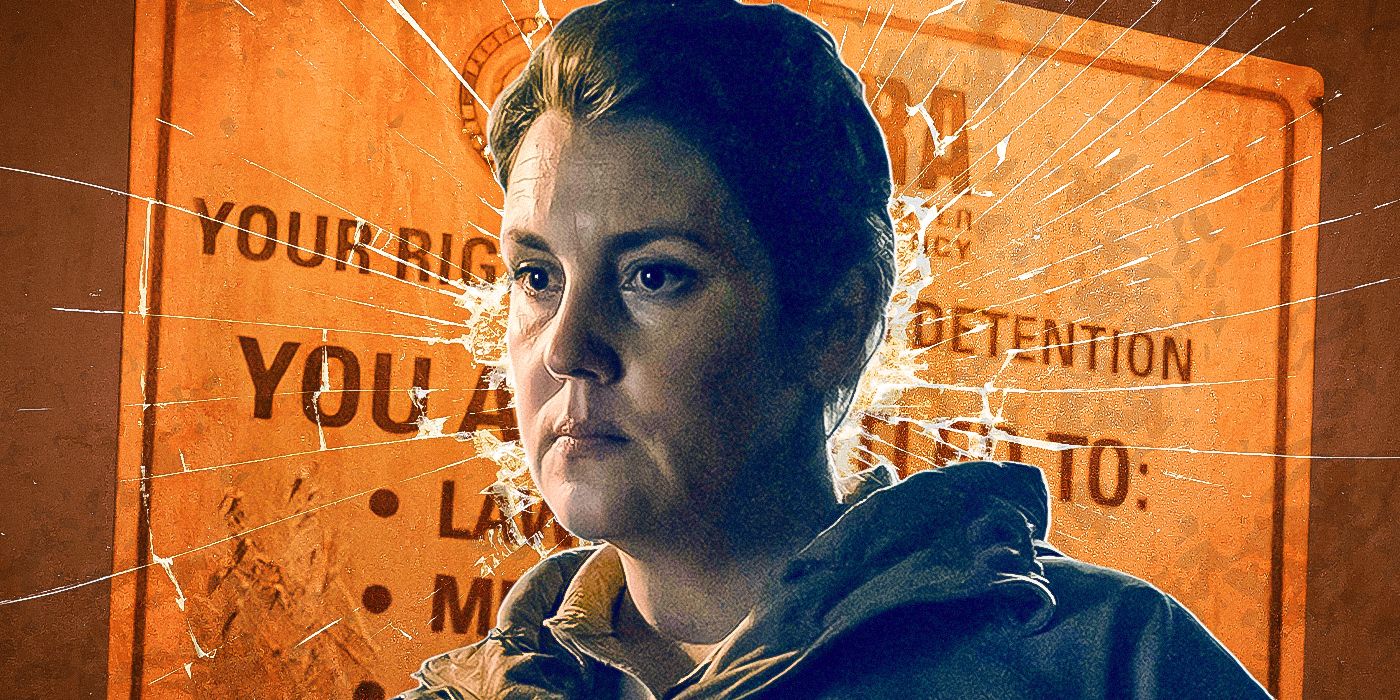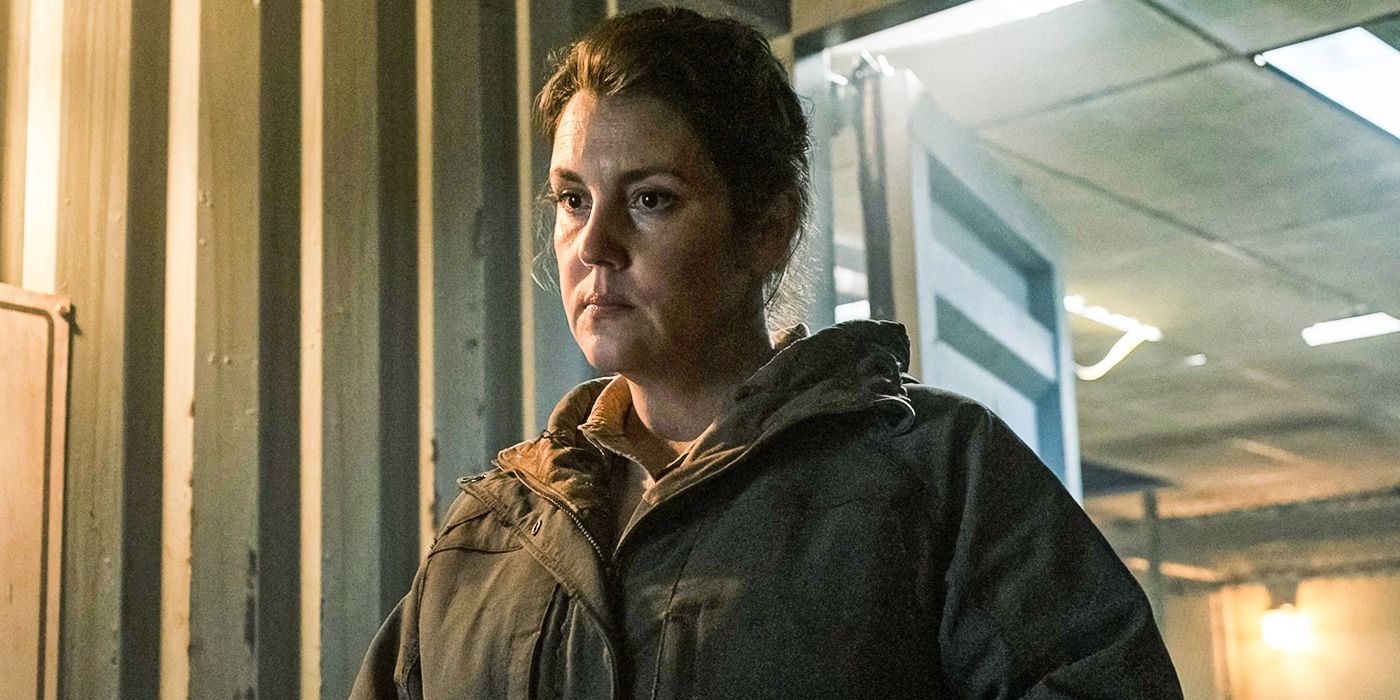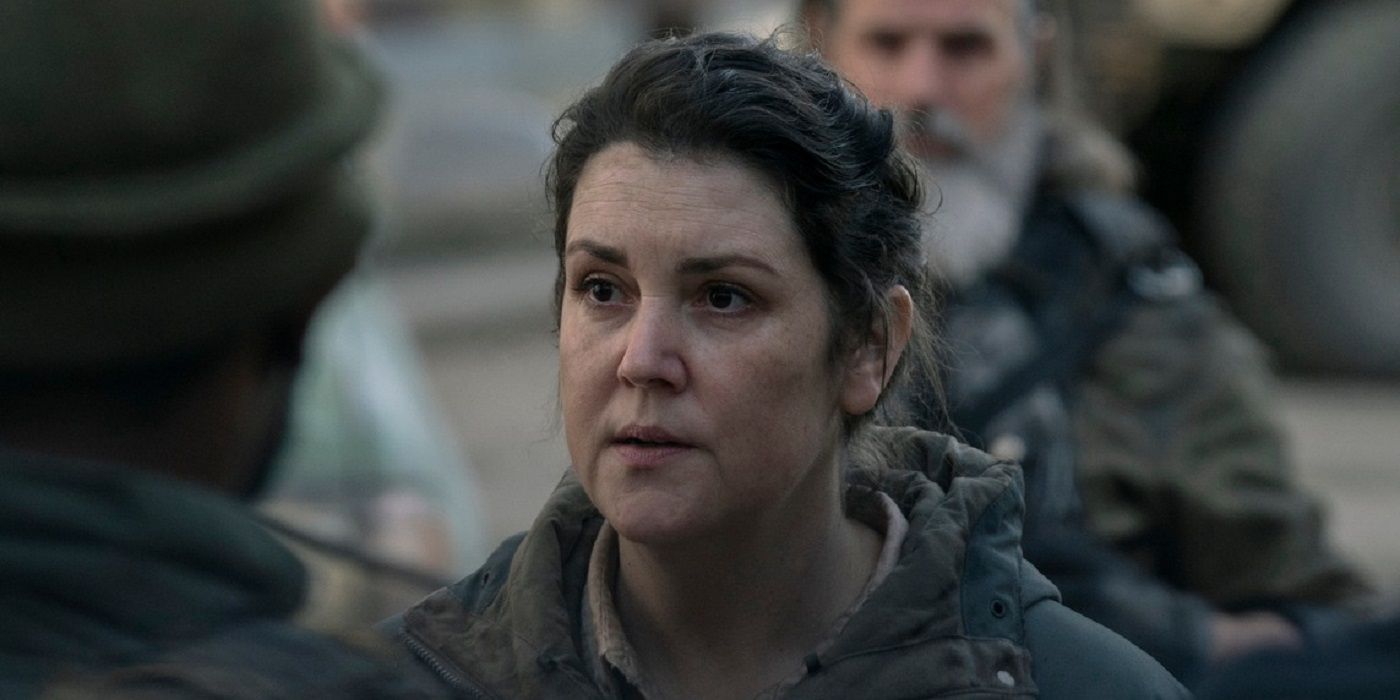Editor's note: The below contains spoilers for Episode 5 of The Last of Us.This week's episode of The Last of Us, "Endure and Survive," told us the tragic tale of Kansas City in the post-apocalyptic days — or, as Henry (Lamar Johnson) called it, "Killer City." The very first scene reveals how Kathleen's (Melanie Lynskey) militia took control of the city inside the walls of the Quarantine Zone, and it was essentially a bloodbath. There are FEDRA officers being executed in plain sight, and, while Episode 4 tried to keep most of the inevitable violence off-screen, this time the series displays an almost The Purge-like level of graphic violence, all to the sound of people claiming to have achieved freedom.
Kathleen is constantly saying that she and her raiders have "liberated" their home, that Kansas City is now "free." Is it, though? As the episode progresses, the story behind what happened to the city is revealed, and it doesn't stray too far from a few actual episodes of political violence we endured in our own world. Essentially, what happened was the replacement of one fascist police state for another, both equally powered by anger, and that is the worst case for any kind of regime to, well, endure and survive. That's what happens when individuals without any comprehension of the people's actual needs or knowledge about government rise to power.
The Burden of Leadership Is Not Meant to Be Light
Government is not something to be thought of lightly. While the beauty of democracy resides in the fact that anyone can rise to a leadership position, it doesn't necessarily mean that one should do it just because. The actual job requires a lot of study, dedication, wisdom, and empathy for one to fully conciliate everything that is expected of an actual leader. In The Last of Us, there is no democracy anymore, as FEDRA is pretty much a fascist police state hellbent on perpetuating its own power, but these ideas about rising to a leadership position are still true in the series' context.
When Kathleen and the Raiders rise to power, the streets of Kansas City become anarchy. According to the flashbacks, FEDRA fell around 10 days prior to Joel (Pedro Pascal) and Ellie (Bella Ramsey) arriving in the city, and that is surely too little time for a new regime to consolidate power and start functioning with visible results. But there was no effort whatsoever on Kathleen's part, what they are really focused on is punishing those who opposed them or who collaborated with FEDRA in any way. They spend valuable time and resources going door to door after Henry and Sam (Keivonn Woodard), instead of taking practical measures to ensure some actual change happens — and that's what eventually sets up their downfall.
Anger and resentment are never good foundations on which to base any decision, much less to build a whole government. It blinds us to what's really at stake and twists our vision, and Kathleen lets herself be affected by her thirst for revenge for the death of her brother, Michael. She mentions that he even told her to forgive Henry for ratting him out, but she doesn't have it in her heart to do so. She lets her personal feelings get in the way of her actual job now that she's the leader of Kansas City. Say what you will about FEDRA, but that's something they actually did when driving the infected underground. That built a time bomb beneath the city, sure, but it bought some years of peace. In Episode 4, Perry (Jeffrey Pierce) even shows Kathleen a sinkhole growing in the city underground, meaning the monsters are close to finally coming back to the surface. As a leader, dealing with that should've been Kathleen's priority from the start, not going door-to-door after detractors.
That lack of vision is a perfect example of why it matters to have people who are actually prepared as leaders. FEDRA is not a positive way of government at all, and every alternative is better than militarized fascism. Kathleen had her chance of implementing a system that worked. She was a well-known and respected member of society and had armed forces at her disposal to enforce it after snuffing FEDRA out, but opted to use all that for selfish reasons, endangering the whole city for the sake of her rage.
What Kathleen and the Raiders Don't Get About Change
Over the past few years, people like Kathleen have been rising to power a lot: Individuals who are not really concerned about actually ruling nor leading, only carrying out their own policies to their own supporters, mostly as a way of getting back at the previous government. When the Raiders took control of Kansas City, that's precisely what happened, as they let anger take hold of their decisions, instead of thinking about how to really promote change from what living under FEDRA rule was.
During their conversation in Kathleen's childhood bedroom, Perry tells her that Michael was a great man, and they would've followed him, but it was her that really changed things. But Perry is clearly not the right person to say something like that, as he previously walked into a room full of people and shot them all. There was no step-up from the violence imposed by FEDRA, and not a drop of common sense on the Raider's part to realize that. The only change that occurred was who was holding the gun. But people like Perry see more results in practical change than in new values. Strength is always more impressive than critical thinking, unfortunately.
Real change requires a sensible look at the state of things before taking any measures to deal with the status quo. Kathleen didn't understand that, Perry didn't, none of the Raiders did. Michael did, though, and, even as he was about to be executed, tried reaching out to his sister in an attempt to show her that. Without this, no one is ever really worried about change, just about power with no purpose. In that sense, the Raiders were really like dogs chasing cars, as Heath Ledger's Joker put in The Dark Knight. So much so that, once they achieved power, they didn't know what to do other than to keep shooting.
What their twisted idea of change brought was doom to Kansas City. They didn't take care of the sinkholes growing in the underground, and didn't take any further steps to fortify the city, letting the infected in after their ill-fated operation to hunt Henry, Sam, Joel, and Ellie. No amount of shouting "freedom" will ever change the fact that they didn't know what to do with the power they had. Strong words like that may sound convincing to those who don't know what it takes to lead, especially if they are holding guns — and that's the sad tale of the rise and fall of Killer City.
Find out more about how to watch new episodes of The Last of Us on HBO and HBO Max.



